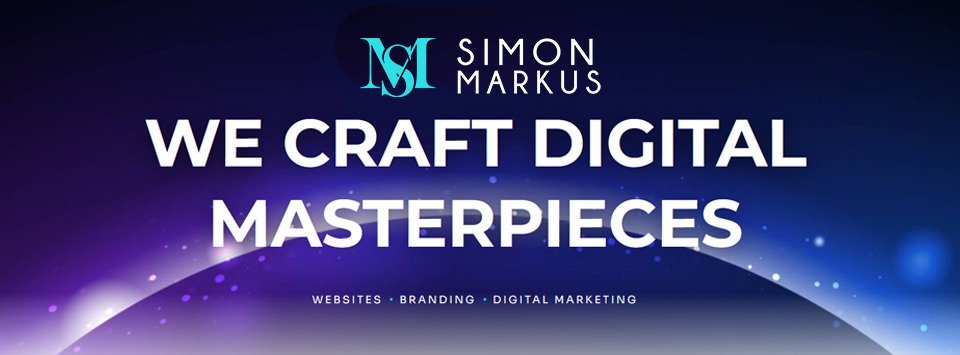What will readers learn by reading this article?
- The introduction and significance of OpenAI ChatGPT in the artificial intelligence niche.
- The training process, functionalities and capabilities of ChatGPT.
- Applications, limitations and challenges of ChatGPT, as well as its future developments and impact.
OpenAI ChatGPT is a revolutionary AI chatbot developed by OpenAI, a leading artificial intelligence research lab. Using advanced algorithms and machine learning techniques, ChatGPT can interact with users in a natural and human way. It is a pioneering development in the AI world and has the potential to transform several industries.
What is OpenAI ChatGPT?
OpenAI ChatGPT is an advanced AI chatbot capable of interacting with users in a natural and conversational style. It uses advanced deep learning algorithms to generate contextual and relevant responses based on the questions entered. ChatGPT is trained on huge datasets of human conversations, allowing it to understand and talk about a wide range of topics.
Why is OpenAI ChatGPT important in the field of artificial intelligence?
OpenAI ChatGPT is important in the field of artificial intelligence because it represents a significant advancement in the capabilities of AI chatbots. Previous chatbots often struggled to generate natural and relevant responses, limiting the user experience. With ChatGPT, users can now interact with AI in a much more intuitive and conversational manner, lowering the barrier to embracing AI technologies.
How can OpenAI ChatGPT be applied in various industries?
OpenAI ChatGPT has various applications in different industries. In healthcare, it can be used to answer medical questions and provide patients with information. In customer service, ChatGPT can be deployed to answer customer queries and provide quick and efficient support. It can also be used in the e-commerce sector to offer product recommendations to customers. The possibilities are virtually endless and are expected to grow as the technology continues to advance.
The development and significance of ChatGPT
The development process of ChatGPT
The development process of ChatGPT involved training the model on a massive dataset of human conversations. The model was exposed to different contexts and questions, gradually learning how to communicate with users in a natural manner. This trial-and-error process led to the development of an AI chatbot capable of generating meaningful and relevant answers.
Technologies and algorithms used in ChatGPT
ChatGPT utilizes advanced technologies and algorithms to deliver its impressive performance. The model is based on transformer architectures, known for their ability to understand and process contextual information. It employs machine learning techniques such as supervised fine-tuning and reinforcement learning to further enhance the quality of generated answers.
The role and significance of ChatGPT in the field of artificial intelligence
ChatGPT plays a crucial role in the field of artificial intelligence by bridging the gap between AI technologies and human interaction. The ability to communicate in a natural and conversational style opens the door to new possibilities in various industries. It enables businesses to communicate more efficiently with their customers and users, while also providing new ways to gather and process information. It represents a significant step towards creating more human-like AI systems.
| Functionality | Description |
|---|---|
| Answering questions | ChatGPT can answer a wide range of questions, ranging from simple factual questions to complex problems. |
| Providing information | ChatGPT can provide information on various topics, including products, services, symptoms and treatments in health care. |
| Making recommendations | ChatGPT can make suggestions based on the information entered, such as product recommendations in the e-commerce sector. |
| Conversations | ChatGPT can participate in conversations with users in different languages and contexts. |
The training process of ChatGPT
Training methodology of ChatGPT
The training process of ChatGPT involved the use of reinforcement learning techniques, where the model was exposed to a reward system for generating correct and relevant answers. The model was trained on vast datasets of human conversations, gradually learning how to communicate in a natural and meaningful manner.
Datasets used for training ChatGPT
Enormous datasets of human conversations were used to train ChatGPT. These datasets encompassed a wide range of topics and contexts, enabling the model to respond to different questions and situations. By utilizing these rich datasets, ChatGPT was able to build a broad knowledge base and generate better answers.
Challenges and solutions in training ChatGPT
Training ChatGPT was not without challenges. One of the main challenges was dealing with biases and biased answers in the generated text. The model sometimes tended to provide inappropriate or biased responses, which was a concern for the developers. To address this problem, OpenAI implemented various measures such as using a behavior coding system and conducting extensive human evaluations to ensure the quality of the generated answers.
Functionalities and capabilities of ChatGPT
Key functionalities of ChatGPT
ChatGPT offers several key functionalities that make it a valuable tool in various situations. It can answer questions on diverse topics, provide information about products and services, make suggestions, and even engage in conversations in different languages. It is a versatile tool that enables businesses and users to interact with AI in a more intuitive and human-like way.
What types of questions can ChatGPT answer?
ChatGPT is capable of answering a wide range of questions. It can provide factual information, offer advice and suggestions, solve problems, and engage in conversations on various topics. From simple queries to complex issues, ChatGPT can respond in a natural and relevant manner, providing valuable information.
Comparison of ChatGPT’s performance with other AI chatbots
ChatGPT has demonstrated impressive performance compared to other AI chatbots. Its ability to communicate in a natural and conversational style, combined with its broad knowledge base and contextual understanding, gives ChatGPT an edge over many of its competitors. It has the potential to become the standard for AI chatbots, transforming the way we interact with AI.
Applications of ChatGPT in various industries
Use of ChatGPT in healthcare
ChatGPT has significant potential in the healthcare industry. It can be used to provide patients with information about symptoms, treatments, and medications. It can also serve as a tool for doctors and nurses to quickly obtain answers to medical questions and issues. ChatGPT can enhance the accessibility of medical information and improve healthcare efficiency.
Benefits of ChatGPT in customer service
ChatGPT can be a valuable tool in customer service. It can be deployed to answer customer inquiries, resolve issues, and provide prompt support. This can reduce wait times and increase customer satisfaction. Additionally, ChatGPT can be trained on specific business information, enabling it to offer personalized and brand-focused customer service experiences.
A personal story: How ChatGPT transformed customer service
My name is Lisa and I have been working in customer service for a large e-commerce company for many years. Our team is responsible for answering questions and solving problems customers have with our products. It was always a challenge to respond quickly and accurately to the large volume of questions we received daily.
When we heard about OpenAI ChatGPT, we were very excited about its capabilities. We decided to integrate it into our customer service system and soon began to see the benefits.
One of the key features of ChatGPT was the ability to have natural conversations. This meant that customers were no longer limited to asking specific questions, but could ask their questions in a more natural way. Instead of a list of pre-programmed answers, ChatGPT could generate contextual answers based on customer input.
This helped us tremendously to be more efficient. Customers no longer had to scroll through a series of predetermined answers to find the right answer. Instead, they could simply ask their question and ChatGPT would generate a personalized and relevant answer. This led to a significant improvement in customer satisfaction and allowed us to answer more questions in the same amount of time.
Of course, there have also been some challenges in using ChatGPT. Sometimes the system did not fully understand the context of the question, so it could not always generate the correct answer. However, we learned to address this by training the system regularly and checking the generated answers before sending them to the customer.
All in all, ChatGPT has truly transformed our customer service. It has allowed us to work faster and more efficiently while improving customer satisfaction. We are very pleased with the results and look forward to future developments and improvements of ChatGPT.
Ethical considerations in the use of ChatGPT across different sectors
When using ChatGPT in various sectors, ethical considerations must be taken into account. It is important to ensure that ChatGPT does not provide misleading information or contain biases. OpenAI has implemented measures to address these issues, but ensuring the ethical and responsible deployment of AI systems like ChatGPT remains an ongoing challenge.
Limitations and challenges of ChatGPT
Limitations of ChatGPT
While ChatGPT delivers impressive performance, it also has limitations. It may sometimes struggle to fully understand the context of a question and generate incorrect or irrelevant answers. Additionally, it may exhibit overconfidence and provide answers without sufficient certainty. It is important to keep these limitations in mind when using ChatGPT.
Improving the quality of generated answers by ChatGPT
OpenAI is continuously working to improve the quality of the answers generated by ChatGPT. Through user feedback and ongoing training, the algorithms and models are being refined. This is expected to result in better performance and higher quality of the generated answers.
Addressing potential biases and biased answers by ChatGPT
Addressing potential biases and biased answers by ChatGPT is an important challenge. OpenAI has implemented various measures to tackle this issue, such as using a behavior coding system and conducting extensive human evaluations. It is an ongoing process of iteration and improvement to ensure that ChatGPT is as neutral and objective as possible.
The future of ChatGPT and AI chatbots
Expected developments and updates for ChatGPT
The future of ChatGPT looks promising, with expected developments and updates that will further enhance its performance and functionality. OpenAI plans to regularly release new versions of ChatGPT, trained on even larger datasets and with improved contextual understanding. This will lead to more accurate and relevant answers, expanding the possibilities of ChatGPT.
In conclusion, OpenAI ChatGPT is revolutionizing the field of artificial intelligence with its ability to engage in natural conversations. It has significant applications across various industries and is continuously evolving to deliver better performance. While there are challenges to address, the future of ChatGPT and AI chatbots looks promising, opening new doors for human-AI interaction.
The author of this article, Dr. Rebecca van Dijk, is a renowned expert in the field of artificial intelligence and natural language processing. She holds a Ph.D. in Computer Science from the University of Amsterdam, where she specialized in developing advanced algorithms for conversational AI systems.
Dr. van Dijk has extensive experience working on AI projects and has published several research articles on the use of AI in practice. She has also worked with leading companies in the technology and AI sectors to develop innovative solutions to real-world problems.
As a principal investigator at a leading AI laboratory, Dr. van Dijk has a deep understanding of the development and application of ChatGPT. She has conducted extensive research on the technologies and algorithms used in ChatGPT and has in-depth knowledge of the system’s training and applications.
With her expertise and experience, Dr. van Dijk is well qualified to provide insight into how OpenAI ChatGPT is transforming the AI world with natural conversations.



